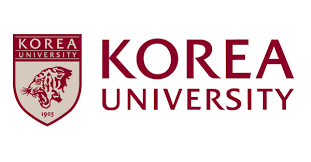Researchers Detect Six Types Of Early-stage Cancers With A Single Blood Test
Just as people share or exchange opinions and information through various types of communication methods, cells use particles known as exosomes to share information and influence each other. Depending on the type or state of cells (normal or diseased), exosomes contain and impart different messages. If doctors or researchers can effectively interpret these messages after isolating exosomes from the blood, they could potentially determine whether or not the original cell, and even the person who has the cell, has a particular disease with relative ease and at an early stage.
A joint research team led by Professor Choi Yeon-ho, Professor Kim Hyun-koo, and EXoPERT Corporation has developed a technology that can diagnose six types of cancer at an early stage—lung, pancreas, breast, colon, stomach, and liver—with a single blood test using exosomes, Raman signals, and artificial intelligence (AI). This technology can both detect cancer at an early stage and identify its type.
The results of their research were published in Nature Communications (IF: 17.7) on March 24 (local time).
* Article Title : Single test-based early diagnosis of multiple cancer types using Exosome-SERS-AI
* Authors: Shin Hyun-ku (first author, Technical Director at ExoPERT Corporation), Choi Byeong-hyeon (first author, Research Professor at the Korea Artificial Organ Center, Korea University), Shim On (co-author, Senior Researcher at ExoPERT Corporation), Kim Ji-hee (co-author, Associate Researcher at ExoPERT Corporation), Park Yong (co-author, Professor in the Department of Oncology and Hematology, Korea University Anam Hospital), Cho Suk-ki (co-author, Professor in the Department of Thoracic and Cardiovascular Surgery, Seoul National University Bundang Hospital), Kim Hyun-koo (corresponding author, Professor in the Department of Thoracic and Cardiovascular Surgery, Korea University Guro Hospital), and Choi Yeon-ho (corresponding author, Professor in the School of Biomedical Engineering, Korea University)
Early-stage cancer detection can lead to better opportunities for treatment and significantly improve survival rates. However, test methods differ for each type of cancer, which requires significant costs and time in testing. In addition, some types of cancer are often difficult to detect at an early stage.
On the contrary, liquid biopsy is a technology that can detect substances in vitro secreted by tumor cells in body fluids such as blood. Since liquid biopsy allows for the diagnosis of an early-stage cancer with blood tests, it is expected to play a crucial role in cancer prevention and treatment.
The research team investigated a substance found in the blood known as exosomes, which are highly regarded as a next-generation cancer biomarker since they are abundant in the blood and contain molecular information about tumor cells in the body. The research team developed a technology that can diagnose six types of cancer by comprehensively analyzing exosome profiles instead of isolating them for each cancer type, using nanotechnology and AI.
First, the research team used surface-enhanced Raman spectroscopy (SERS) bio-sensing technology to isolate exosomes from blood, obtaining more than 20,000 Raman signal data for collecting the exosomes’ molecular profiles. Based on those data, the research team implemented an AI algorithm that could simultaneously identify six types of cancer and then analyzed the exosome data of 520 people with and without cancer that were not used for algorithm training.
Through these processes, the research team was able to detect the presence of lung, pancreatic, breast, colon, stomach, and liver cancer with 97% diagnostic accuracy (based on the arear under the curve (AUC) of the receiver operating curve (ROC), showing a sensitivity of 90% at a specificity of 94%. Moreover, this technology was also able to identify the tissue of origin with an average accuracy of more than 90%. In particular, it showed a sensitivity of 88% in detecting cancer at stage II or earlier and accurately identified the type of cancer in 76% of patients, demonstrating its potential as a liquid biopsy for early cancer diagnosis.
Professor Choi Yeon-ho said, “The findings of this research can help bring to life ‘multi-cancer early detection (MCED),’ which has recently emerged as a hot topic in cancer diagnosis.” He added, “MCED is expected to contribute to significantly reducing not only mortality but also the costs of medical care incurred by cancer patients.”
Professor Kim Hyun-koo said, “The findings of this study can help analyze exosomes isolated from a small amount of blood and diagnose various types of early-stage cancer with high accuracy. Compared to expensive radiation imaging diagnostic methods, the technology can help reduce the financial burden on patients and lead to more positive cancer outcomes thanks to early cancer diagnosis.”
The research team has applied for a patent for this technology and is working full steam on technological development and approval for rapid commercialization. ExoPERT, which is driving the development and commercialization of the technology, aims to initiate a clinical trial on AI software for lung cancer diagnosis following Ministry of Food and Drug Safety guidelines by the end of this year. The company plans to roll out the multi-cancer simultaneous early detection technology into the market.
Dr. Shin Hyun-ku of ExoPERT said, “Since our technology utilizes a non-specific analysis of Raman signatures, its diagnostic scope is expected to be expanded to include other diseases.” He added, “As we have already reported our core technologies from the exosome isolation reagent to the medical device for Raman signal detection to the medical authorities, we will strive to commercialize these technologies, thus contributing to actual diagnostic tests in the near future.”
This study was supported by a grant from the Korea Medical Device Development Fund and the Seoul Business Agency.

